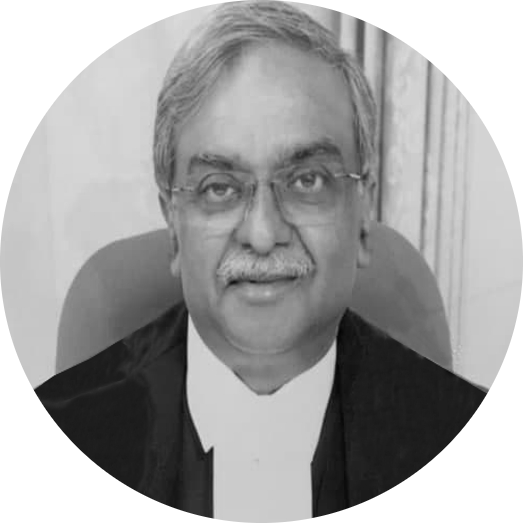Vikram Nath

Vikram Nath
Sitting Judge of the Supreme Court of India
Assumed Office31st Aug, 2021
Retires On24th Sep, 2027
Previously
Chief Justice of the Gujarat High CourtSeptember 10th 2019-August 30th 2021
Judge of the Allahabad High CourtSeptember 24th 2004-February 27th 2006
Enrollment1987
Profile
Education and Career as an Advocate
Justice Vikram Nath graduated from the University of Lucknow and enrolled as an Advocate in 1987.
Career as a Judge
He practised as an Advocate for 17 years before he was appointed as an Additional Judge of the Allahabad High Court in 2004. In 2006, he became a Permanent Judge at the Allahabad High Court.
In April 2019, Justice Nath was recommended to be elevated as the Chief Justice of the Andhra Pradesh High Court. However, the Union Government asked for the recommendation to be reconsidered. He was subsequently appointed as Chief Justice of the Gujarat High Court in 2019. The seat had been vacant since November 2018 before Justice Nath’s appointment.
On August 17th, 2021, he was elevated as a Judge of the Supreme Court. He will become the Chief Justice of India on February 9th 2027 and will hold the position for 7 months before he retires in 2027.
Figure 1 shows that Justice Nath has authored 39 Judgements and was part of 175 Benches during his tenure so far.
According to Figure 2, Justice Nath majorly authored judgements in Criminal matters (30%). Additionally, he authored judgements in Service (22%), Civil (13%) and Property (13%) matters.
Notable Judgements
In Mahant Akhileshwardasji Ramlakhandasji v. State of Gujarat (2020), a Division Bench of Chief Justice Nath and Justice J. B. Pardiwala, in a midnight hearing, rejected all pleas seeking permission to conduct the Rath Yatra. The Court reasoned that the situation of Ahmedabad during the COVID-19 pandemic cannot be compared to other states.
In Ajay Kumar Shukla v Arvind Rai (2020), a 3-Judge Bench declared the seniority list prepared by the Department of Minor Irrigation in Uttar Pradesh unlawful. The bench included Justices D.Y. Chandrachud, Vikram Nath, and B.V. Nagarathna. The seniority list in question would determine the promotions in the department. The Bench held that the list was in violation of statutory requirements. The appellants argued that the Department had placed candidates from different streams in the same sequence, disregarding their seniority. The SC analysed the relevant rules and concluded that the separate lists for all the streams were contrary to the rules. The Court emphasised the right of candidates to be considered for promotion based on merit and ordered the preparation of a fresh seniority list in accordance with the rules. They also highlighted that ‘the right to promotion is not considered to be a fundamental right, but consideration for promotion has now been evolved as a fundamental right.’
In Barun Chandra Thakur v Master Bholu (2022), a bench of Justices Dinesh Maheshwari and Vikram Nath held that ‘mental capacity and the ability to understand consequences of acts’ are not the same. They reasoned that a child may be aware of the consequences of their actions but lacks the emotional competence to control them. The Court gave an example where a child with average intelligence may understand the risks of reckless driving but may still engage in it due to low emotional competence and a desire for thrill-seeking.
In Balwant Singh v. Union of India (2023), a Bench consisting of Justices B.R. Gavai, Vikram Nath, and Sanjay Karol rejected a plea to commute the death penalty of Balwant Singh Rajoana, who was convicted for the assassination of former Punjab Chief Minister Beant Singh. Instead of making a decision directly, the Court referred the matter to the competent authority within the Central government, which will handle the mercy petition filed by Rajoana.